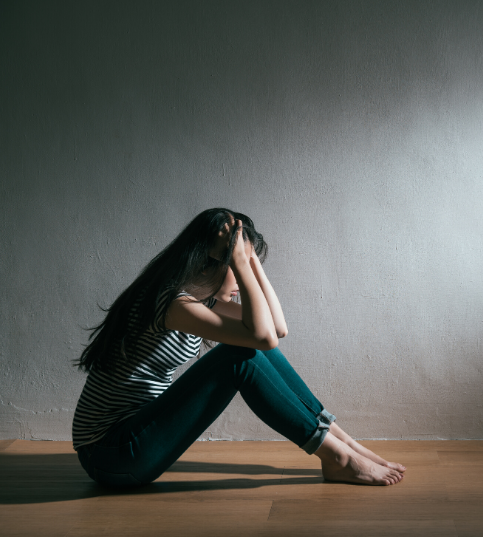Depression is the most common mental health disorder treated in the United States. It is estimated that over 3 million adults are diagnosed each year. Categorized as a mood disorder, it is a serious medical illness that negatively affects how you feel, the way you think, and how you act. It can lead to a loss of interest in activities once found enjoyable and can lead to a person’s inability to function properly.
What is the Difference Between Depression and Sadness?
Depression is different than sadness. Everyone has felt sadness or feelings of being unhappy in their lifetime. Sadness is often triggered by a life event. It can be caused by something simple such as a bad day at work or an argument with a spouse. It can also be attributed to a larger life event, such as the sudden loss of a loved one or another kind of big life transition. But sadness usually passes with time. And a person experiencing sadness can usually find some relief from crying, venting or talking about the triggering event.
Depression is a serious medical issue caused by a chemical imbalance in the brain. It is a much larger scale issue, best treated by a mental health professional. Depression, itself, can be a cause of sadness. And the negative effects can permeate a person’s entire life – how they feel, how they think, and how they act. It can make it difficult for a person to cope with normal, daily activities.
Common Causes of Depression
Some of the most common causes of depression can be attributed to:
- Genetics
- Major life transitions
- Feelings of being out of control
- A traumatic life event
Common Symptoms of Depression
Some of the most common symptoms include:
- Feelings of sadness, worthlessness, and/or hopelessness
- Crying: Frequently and/or extensively
- Irritability or dark moods
- Withdrawing from others and/or isolating oneself
- Changes in sleep patterns: Having difficulty sleeping or sleeping too much
- Changes in appetite: Increased or decreased appetite
- Lack of energy and/or lack of motivation
- Lack of pleasure doing activities that were previously enjoyable
- Inability to concentrate or perform duties, previously performed easily and/or regularly
- Suicidal thoughts or attempts
Not everyone will experience the same symptoms, and people will often experience varying degrees of symptoms. These are just the most common symptoms, and if experiencing any of these symptoms for an extended period of time, please seek help from a mental health professional.
If you feel you are a danger to yourself or others, call 911 immediately. Or if you are in distress, contact the National Suicide Prevention Hotline for 24/7, free and confidential support at 1-800-273-8255.
Diagnosing Depression

First a mental health provider will determine the type of depression a person may be suffering from. Some types of depression may be acute, or short term. Others may be suffering from chronic, or long-term depression. Some types of depression can be categorized by their specific causes, such as Seasonal Affective Disorder (SAD) or Postpartum Depression.
Certain medical conditions and/or medications can lead to or contribute to a chemical imbalance in the brain causing depression.
There may also be some co-occurring disorders that make diagnosis a bit more challenging. For instance, some people may have chronic depression (lasting longer than 6 months) and have an anxiety disorder, which are disorders commonly found together. Additionally, a number of individuals that have survived physical, sexual, emotional, or psychological abuse tend to seek treatment for a depressive disorder.
All of these factors (and more) need to be assessed, determining diagnosis.
Depression Treatments
Treatments vary based on the diagnosis and the person receiving the treatment. If a professional counselor finds a duel (or multiple) diagnosis, treatment plans will typically work through these simultaneously in therapy. And all forms of treatment typically include some form of talk therapy.
Dr. Alyx MacTernan of Elemental Mental Health specializes in treating depression. She will evaluate your symptoms, make a diagnosis, and recommend a specialized treatment plan designed just for you. She offers mental health counseling for depression via a secure online telemental health platform allowing residents of Georgia, Florida, Texas and California the ability to get treatment for depression from the comfort of their own home. Fill out the contact form on the website for more information.
